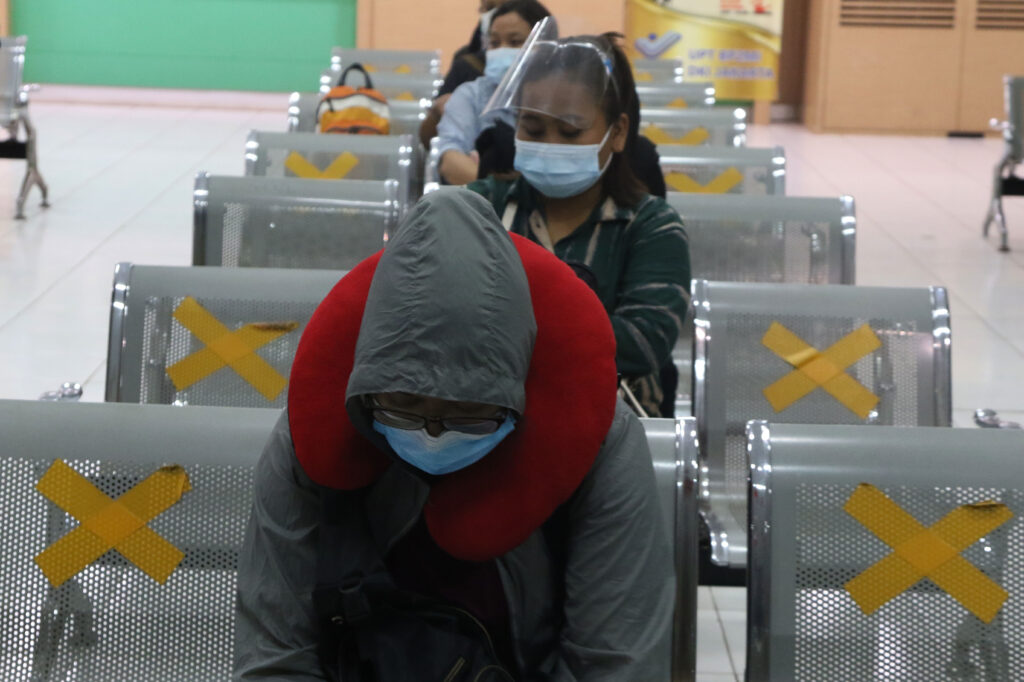Human trafficking is a global, non-traditional security threat, affecting nearly 50 million individuals in 2021. This issue is especially prominent for ASEAN countries, where forced migration is exacerbated by conflict and climate vulnerabilities, the prevalence of drug trafficking networks, complex governance issues, porous borders and weak immigration controls.
ASEAN countries simultaneously serve as a field for trafficking practices and a target for global trafficking operations. Data collected by the International Organization for Migration since 2002 identifies 10,045 trafficked persons across ASEAN countries, including Timor-Leste. Meanwhile, 24,707 ASEAN citizens are victims of human traffickers worldwide, exposing the vulnerability of Southeast Asian labourers to trafficking and exploitation due to insufficient prevention mechanisms by individual ASEAN governments. The actual numbers may be higher, as there are significant gaps in reporting.
ASEAN recognises the weakness of law enforcement in identifying local trafficking offences and the inadequacy of reporting standardisations. The regional bloc has strived to prevent trafficking, punish offenders and protect victims through commitments such as the ASEAN Declaration Against Trafficking in Persons, Particularly Women and Children and the ASEAN Declaration Against Transnational Crime. All ASEAN countries except Brunei have ratified the UN Protocol to Prevent, Suppress and Punish Trafficking in Persons, Especially Women and Children.
ASEAN has also worked with external partners to strengthen justice responses that protect victims’ rights, spearheading regional collaborations to counter trafficking practices. The ASEAN–Australia Counter Trafficking program has enhanced data collection practices and promotes transparency in the publication of national annual reports. To improve labour migration standards, ASEAN has also partnered with the United Nations and the International Labour Organization through programs such as TRIANGLE in ASEAN with the Australian and Canadian governments, and Safe and Fair with the European Union.
Despite efforts to combat human trafficking across the region, the rise in online activities during COVID-19 has seen an increase of cases of digital fraud, ranging from romance investment scams to cryptocurrency frauds. With approximately 460 million internet users as of 2022, ASEAN is home to one of the world’s fastest growing digital markets. A lack of digital literacy and low data safety standards has made ASEAN internet users vulnerable to online scams.
Online scam operations have altered the profiles of trafficking victims. While cases have usually involved individuals with limited access to education and who are engaged in low-wage work, victims of online scam operations are now commonly well-educated and computer literate. While various measures have been initiated to promote the licensing of private recruitment agencies in the region, the evolving landscape of digital labour recruitment adds another layer to the challenge of labour migration governance, complicating the detection and prevention of human trafficking cases.
While regulations exist on a national level in some ASEAN countries, these measures are insufficient without the regional capacity to detect and prevent cybercrimes. As the 2023 ASEAN Chair, Indonesia has recognised the abuse of technology in human trafficking as a regional security challenge and has spearheaded the adoption of the ASEAN Leaders’ Declaration on Combating Trafficking in Persons Caused by the Abuse of Technology at the 2023 ASEAN Summit. To promote regional cooperation on cybersecurity, the ASEAN Defence Ministers’ Meeting Cybersecurity and Information Centre of Excellence was also officially opened in July 2023.
Further challenges arise in determining who should be held accountable for trafficking crimes and identifying victims. In 2022, the Cambodian government launched crackdowns on Chinese crime syndicates promoting illegal online gambling and human trafficking, where workers from ASEAN countries were lured to move to Sihanoukville through social media platforms. According to Indonesia’s Ministry of Foreign Affairs, Indonesia has successfully repatriated more than 240 of its citizens and will continue to collaborate closely with Cambodian authorities for future repatriation attempts. Cambodia and China have also collaborated closely to investigate the Chinese ringleaders involved in the scheme.
Traditional approaches to trafficking have typically involved close collaboration between home and host countries, focusing on identifying trafficked persons and trafficking syndicates. These efforts have been conducted bilaterally and multilaterally by harmonising laws, repatriating victims and developing robust reporting lines between various agencies involved in detections and prevention. As trafficking activities proliferate into the online space, ASEAN countries should recognise this as an international organised crime threat which requires engagement with the private sector to combat.
While technology exacerbates the issue, it also presents a solution. Partnerships with the private sector can deliver on a number of areas — by identifying how social media platforms might inadvertently facilitate human trafficking, providing digital literacy courses for social media users and fact checking and flagging misleading recruitment advertisements. Private sector partnerships can also explore regulatory measures to enhance the effectiveness of social media in preventing trafficking and study the role of algorithms in distributing trafficking-related content.
As a net consumer of technology and media, Southeast Asia cannot afford to be passive and not exercise its agency. ASEAN should hold social media platforms accountable in a way which protects privacy and freedom of expression, with efforts centred on a human rights response that prioritises the non-punishment and protection of victims. This will require regional cooperation to build the necessary capacity to identify, investigate and prevent human trafficking.
Melinda Martinus is Lead Researcher at the ASEAN Studies Centre and the Climate Change in Southeast Asia Programme at the ISEAS–Yusof Ishak Institute, Singapore.
Indira Zahra-Aridati is Research Officer at the ASEAN Studies Centre, ISEAS–Yusof Ishak Institute, Singapore.

